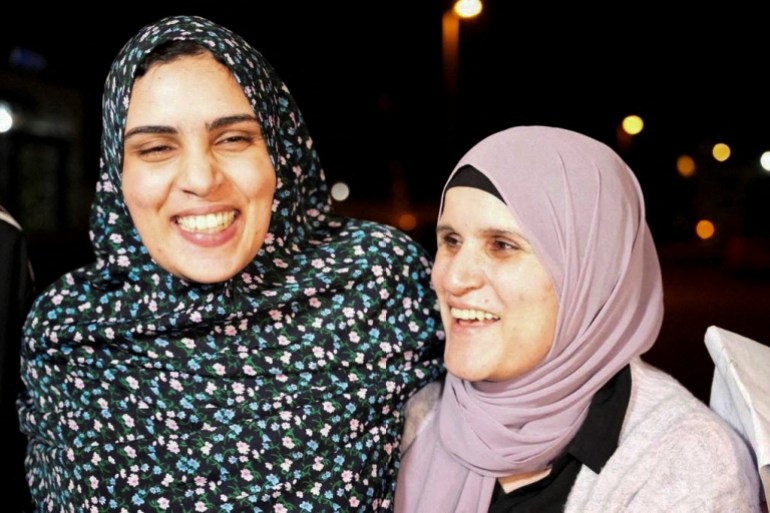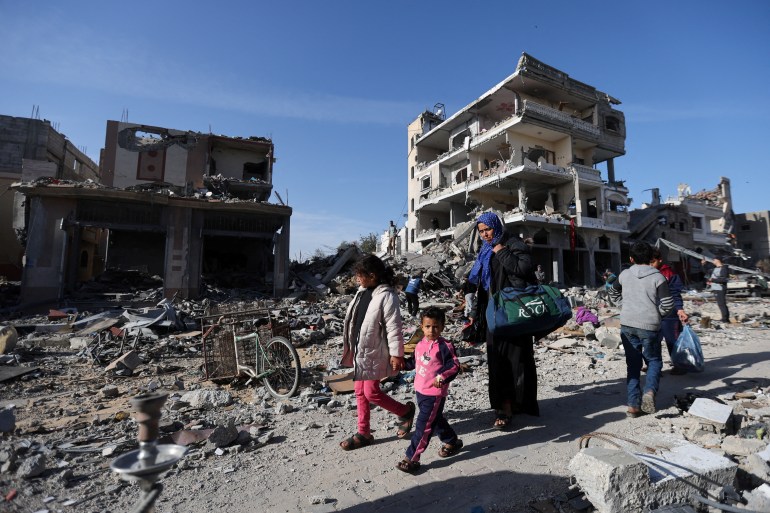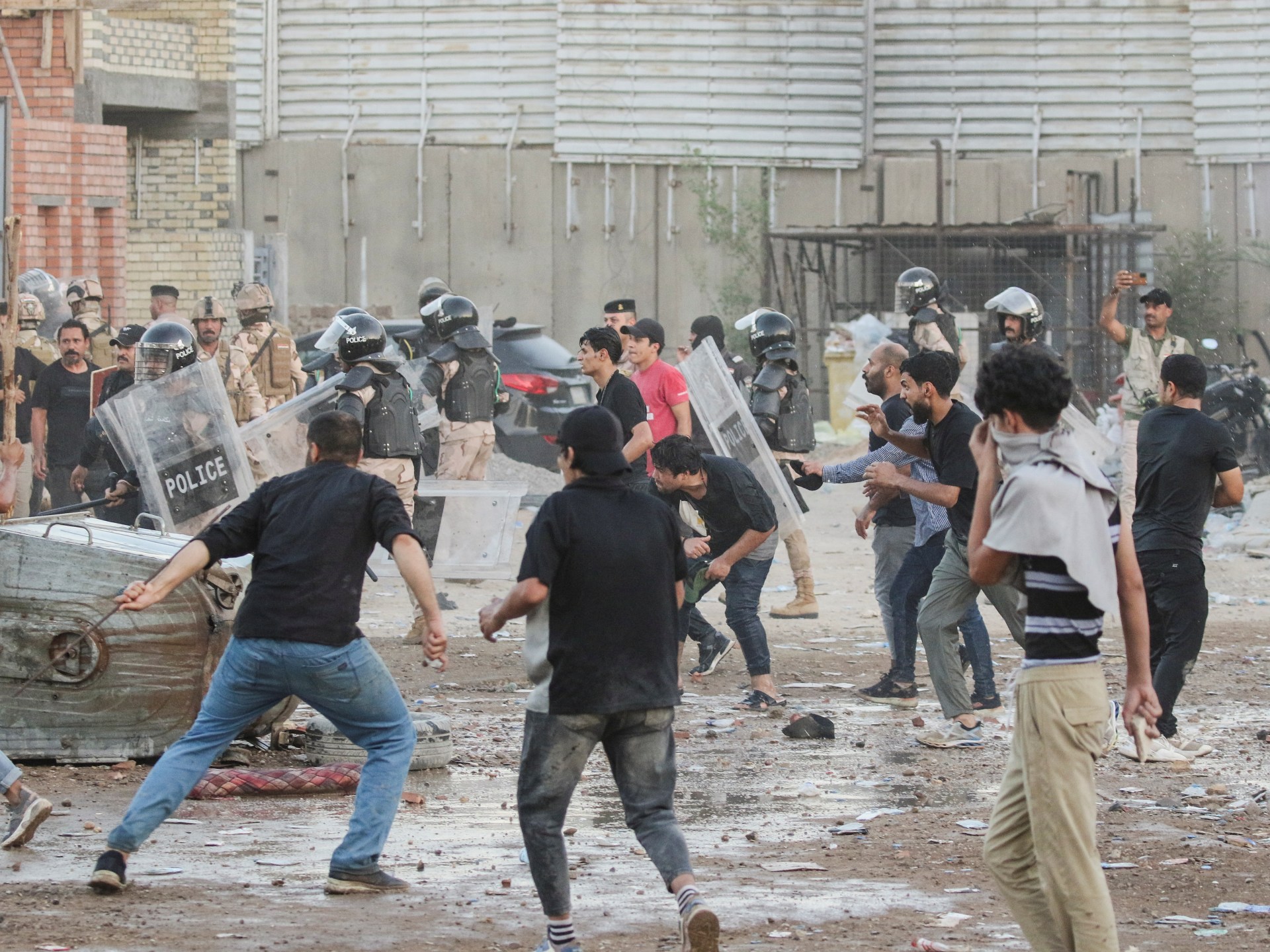Israel-Hamas four-day truce starts: How day one unfolded
EXPLAINER
In the first day, 24 captives held in Gaza were released on Friday, while a total of 39 women and children were released from Israeli jails.
After 48 days of war and bombardment that took thousands of lives, a four-day truce in the Israel-Gaza war began on Friday with captives released in exchange for Palestinian prisoners.
Here is what we know about day one:
Captives and prisoners release
- During the four days of truce, at least 50 captives are expected to be freed, leaving an estimated 190 captives in Gaza. In exchange, 150 Palestinians prisoners are expected to be released.
- On Friday, 24 captives held in Gaza, including 10 Thai nationals, one Filipino and 13 Israeli women and children were released. In exchange, 24 Palestinian women — including two 18-year-olds — and 15 boys who were held as prisoners in Israel were released.
- The captives were transferred out of Gaza and handed over to Egyptian authorities at the Rafah border crossing, accompanied by eight staff members of the International Committee of the Red Cross (ICRC) in a four-car convoy, the ICRC said.
- Earlier on Friday, at 7:00am local time (05:00GMT) combat between Israeli troops and Hamas fighters halted for the first time in seven weeks under the truce. No big bombings, or artillery or rocket attacks were reported, although Hamas and Israel both accused each other of sporadic shootings.
- Both said the war would resume at full throttle as soon as the truce was over.
On day one this is how things unfolded:
Thailand:
- Thailand’s Prime Minister Srettha Thavisin was the first to announce the release of some captives. He said his government received confirmation that some Thai workers held in Gaza were released by Hamas.
- A total of 10 Thai nationals were released. At least 23 Thai workers are believed to be taken as captives into Gaza during the October 7 attack, in addition to 32 Thai workers who were killed during the assault.
- The release of the Thais, who were all men, is believed to be unrelated to the truce negotiations and followed a separate track of talks with Hamas mediated by Egypt and Qatar.
- The Thai nationals “will be taken to Shamir Medical Center (Assaf Harofeh), where they will be met by Embassy officials. They are required to be under medical supervision for a period of 48 hours, without access to outsiders,” Thailand’s foreign ministry said.
Israel:
- About half an hour later (around 14:23 GMT), the other captives were released, Hamas officials told AFP.
- At 6:06pm in Gaza (16:06 GMT) the ICRC confirmed that 24 captives were released.
- At 7:17pm (17:17 GMT) the Israeli military said that its forces were currently with the released captives. “They will continue to be accompanied by [Israeli] soldiers as they make their way to Israeli hospitals, where they will be reunited with their families,” they added.
- A full list of the Israeli captives released on Friday is available here.
- Speaking to Al Jazeera, Haaretz columnist Gideon Levy said most Israelis were watching images of the captives being released on their television screens.
- “There is a mixture of emotion, on one hand, there is the most simple basic happiness for families getting reunited … but every Israeli knows that this is just the beginning,” Levy said.
- “I think the nation’s sentiment right now is very clear, and is very general: Israelis want all the hostages back at any price, except for very radical right groups… and it means an extended ceasefire, because everyone understands that you cannot get back to the war with the same intensity and expect more deals,” he explained.
The moment 13 of our loved ones entered Israeli territory.
Welcome home 💙
📸@IDF pic.twitter.com/reXgBLLeFx
— Israel ישראל 🇮🇱 (@Israel) November 24, 2023
Palestine:
- At 7:34pm (17:34 GMT), Qatar confirmed the release of 39 Palestinian women and children held in Israeli jails.
- As part of a negotiated truce between Hamas and Israel, the group was transferred to Ofer Prison in the occupied West Bank, where families gathered outside are waiting anxiously for their return home.
- Marah Bakeer, who was arrested in 2015 when she was 16 years old, has been released from Ofer Prison. She was among the first batch of Palestinian women and children who were released as part of the truce agreement.
- Bakeer told Al Jazeera many of the released prisoners need medical attention. “All of the prisoners suffered a high level of medical neglect [while detained],” she said. Bakeer was shot in the arm while being arrested.
- A complete list of the Palestinian prisoners released on Friday is available here.
- According to Marwan Bishara, Al Jazeera’s senior political analyst, this could the beginning of something positive.
- “If the agreement works today, it means it could definitely work in the following few days,” Bishara said.
- “This is the other side to the darkness that has befallen Gaza and somewhat Israel over the past 50 days … so it’s important for us to look at this, regardless of how short and how complicated it is, and see it as what is possible and why ending this war is so important,” he added.

International aid
What’s the situation in Gaza?
- In Khan Younis town in southern Gaza, streets filled with people venturing out of home and shelters into a landscape of buildings flattened into heaps of rubble.
- Displaced families with small children carried belongings in plastic bags, hoping to return at least temporarily to homes they had abandoned earlier in the war.
- “I am now very happy, I feel at ease. I am going back to my home, our hearts are rested,” said Ahmad Wael, smiling as he walked carrying a mattress balanced on his head. “I am very tired of sitting without any food or water. There [at home] we can live, we drink tea, make bread.”
- In northern Gaza’s combat zone, viewed from across the fence in southern Israel, there was no sign of the warplanes that have thundered through the sky for weeks, explosions on the ground or the contrails of Hamas rocketfire. Just one plume of smoke was visible in the early afternoon.
- Columns of Israeli tanks rolled away from the Gaza Strip’s northern end in the morning, while aid trucks entered from Egypt at the southern end.





